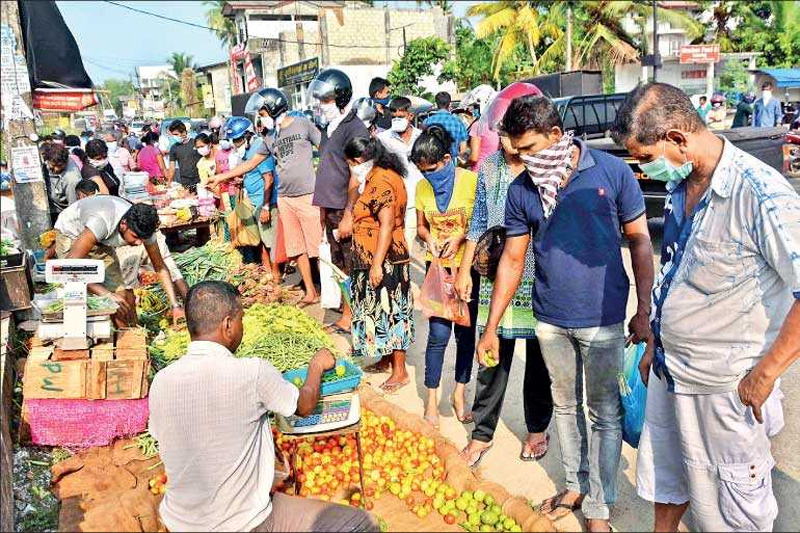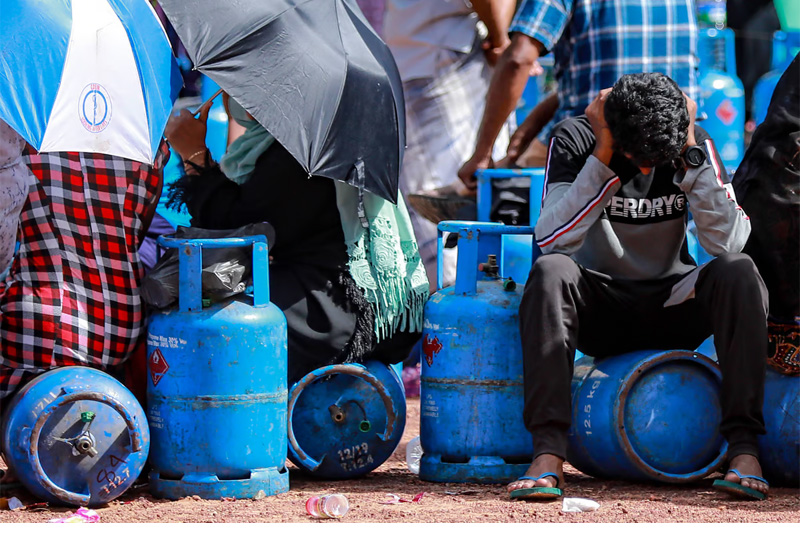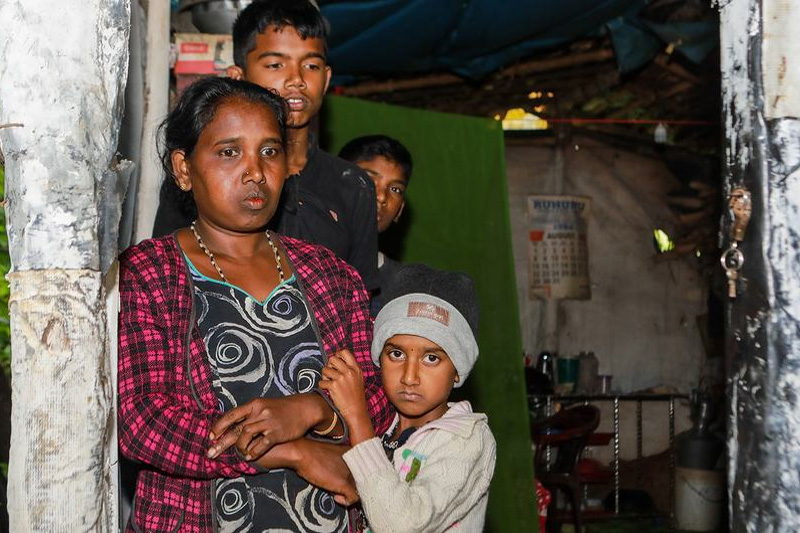by Rohana Jith
With the Presidential Election scheduled for September 21, the nation faces a crucial decision about its future direction. As political campaigns heat up, it is essential for voters to look beyond catchy slogans and focus on meaningful policy debates.
The country is still haunted by the economic crisis of just two and a half years ago, marked by fuel shortages and widespread power outages.
Therefore, it is crucial for voters to demand clear and practical policies from Presidential candidates to prevent such hardships from happening again.
Sri Lanka has approached the International Monetary Fund (IMF) 16 times before, with five instances since 2000. Currently, the country is under its 17th bailout package, supported by a $2.9 billion extended fund facility from the IMF.
In the past, Sri Lanka did not receive the full amount of the IMF loan on six occasions due to non-compliance with loan conditions. This included the 2016 Extended Fund Facility (EFF), where the IMF's conditions added pressure on the domestic economy, leading to skepticism about whether Sri Lanka will meet the stricter conditions this time.

The government has enacted 75 new laws in the past two years, making Sri Lanka's legal framework the most up-to-date in South Asia. With these reforms, there is no turning back from the current economic recovery process.
Previously, monetary control in the country was governed by regulations that could be easily amended or violated, leading to ineffective control. Currently, the government has introduced new laws for managing public funds, modeled after systems in New Zealand, the United Kingdom, Australia, and India.
The government is shifting from an import-based economy to an export-based one, supported by a new economic transformation law. Sri Lanka has fulfilled nearly all conditions agreed upon with the IMF, and these are now legally binding, preventing any future violations.
The IMF is set to conduct the third review of Sri Lanka's EFF after the upcoming presidential election. An IMF mission, led by Senior Mission Chief Peter Breuer, emphasized that any policy deviations could threaten Sri Lanka's recovery.
A former treasury secretary stressed the importance of continuing the IMF-backed reform program and meeting structural benchmarks to secure further disbursements from the $2.9 billion EFF. So far, Sri Lanka has received $1 billion under this program.
The structural benchmarks, revenue, and expenditure figures agreed with the IMF are fixed and non-negotiable. The IMF's Executive Board reviews the program periodically and may grant waivers if Sri Lanka fails to meet certain conditions, provided the deviations are minor or temporary.
Altering agreements with the IMF or creditors could jeopardize the country’s financial support, leading to another economic collapse. The IMF does not change its benchmarks for any country, and Sri Lanka must implement its agreement with the IMF.

The IMF has welcomed Sri Lanka's efforts to combat widespread corruption, a significant concern in the country. A comprehensive anti-corruption program has been proposed, with new laws now being implemented.
The government introduced the 21st amendment, leading to the creation of a related commission, and enacted the Anti-Corruption Act in 2023, with amendments in 2024.
Efforts are also underway to curb corruption in administrative spending. Although developing such a system is challenging due to a lack of expertise, the government has drafted a report on public administration investigations, subject to amendments based on IMF proposals.
Work is also in progress on drafting the Proceeds of Crime Act, marking a significant shift in Sri Lankan politics.
The government has faced accusations of protecting corrupt individuals, but it has introduced legislation to address this issue. However, the effective implementation of these laws requires practical experience and comprehensive training programs. The Ministry of Justice, with support from the World Bank, Asian Development Bank, and the United States, is leading this initiative.
Sri Lanka's economic recovery has shown positive momentum, with real GDP growth reaching 5.3% year-on-year in Q1 2024, marking three consecutive quarters of expansion. Inflation remains below the Central Bank of Sri Lanka’s (CBSL) 5% target, and domestic borrowing rates have declined.
Gross international reserves increased by $1.2 billion in the first half of 2024, totaling $5.6 billion. Fiscal revenues also rose during this period. However, the ongoing economic improvements must lead to better living conditions for all Sri Lankans.
Sustaining the reform momentum and ensuring the timely implementation of program commitments are crucial for solidifying the progress made so far and establishing a stable economic foundation.
The 2025 Budget needs to include appropriate revenue measures and spending restraint to achieve a primary balance of 2.3% of GDP, essential for restoring debt sustainability. Relaxing import restrictions on motor vehicles is expected to boost revenue in 2025, while tax administration reforms, including a functioning VAT refund system for exporters by April 2025, could improve compliance.
It is important to avoid new tax exemptions to reduce corruption risks and revenue leakages, ensuring a more transparent tax system. Maintaining energy prices at cost-recovery levels is also critical to prevent potential fiscal costs. Additionally, protecting the poor and vulnerable through better-targeted cash transfers remains vital.

Recent parliamentary approval of the Public Financial Management Act and the Public Debt Management Act marks significant progress in improving fiscal discipline and debt management.
Developing a comprehensive debt management strategy and establishing a well-structured Public Debt Management Office will help lower financing risks. Monetary policy should continue to prioritize inflation control and maintaining price stability, with a focus on safeguarding CBSL’s independence. Reserve accumulation and exchange rate flexibility are key priorities.
The recent amendments to the Banking Act and related regulations aim to safeguard financial stability. Ensuring that the banking sector is adequately capitalized is essential for its contribution to economic growth. The recently formulated National Anti-Corruption Agenda, based on the authorities' earlier governance action plan, is a positive step towards addressing corruption risks and preventing past policy missteps. Implementing governance reforms is key to building public confidence and facilitating important efforts.
Sri Lanka has made commendable progress in achieving debt sustainability. The domestic debt restructuring and finalizing agreements with the Official Creditor Committee and China EXIM Bank are significant milestones.

The IMF has provided an assessment of the “Joint Working Framework” announced during discussions with the bondholder committee. A swift resolution of remaining steps is encouraged to achieve debt sustainability and regain investor confidence. The IMF will continue to support Sri Lanka's debt restructuring efforts.
The progress in meeting key commitments under the IMF-supported program will be formally assessed in the context of the third review of the Extended Fund Facility (EFF).
The timing of the third review will be discussed with the government following the recently announced presidential elections. The IMF team held meetings with key government and CBSL officials, parliamentarians, private sector representatives, civil society organizations, and development partners, expressing gratitude for the collaboration and reaffirming their commitment to supporting Sri Lanka's full and inclusive economic recovery.



